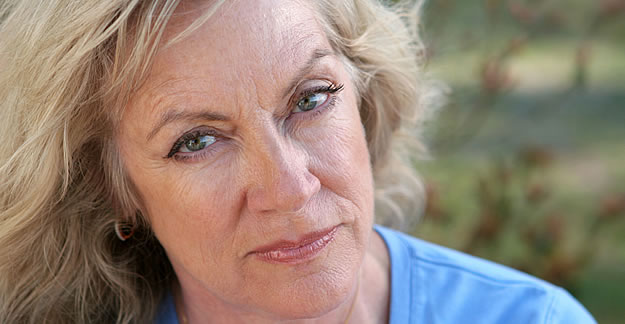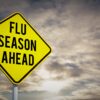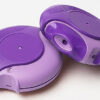Almost like clockwork every year, a news story pops up asking, “Should we rethink hormone treatments for menopause?” Despite these prompts to ponder current menopause treatment options, confusion and fear about HRT-related health risks persist. Are women suffering symptoms unnecessarily due to outdated misconceptions? New guidelines in the November issue of the Journal of Clinical Endocrinology and Metabolism — as well as recommendations from a host of experts — explain how treatment for menopause is evolving.
Failing to address menopause symptoms can result in more serious consequences than just bothersome hot flashes and insomnia — left untreated, menopause can lead to bone loss and additional damaging health effects, says Holly S. Puritz, MD, FACOG, of The Group for Women in Norfolk, Virginia.
But it’s confusing and frustrating for many women to weigh the benefits and risks of medications and treatments for menopause. Different doctors have contradictory advice and the news is full of frightening stories. But as more and more organizations and doctors are getting the memo that HRT is an effective and safe option for many women, the tide might finally be changing.
Browse This Article
What is HRT?
Hormone therapy can be prescribed to help relieve the symptoms of menopause and perimenopause (the period before menopause, when estrogen levels gradually drop and periods likely become less regular). It works because hormone therapy restores to normal the estrogen levels that have decreased during and after menopause. If you haven’t had a hysterectomy and still have a uterus, you can take a combination of estrogen and progestin, which is another type of female hormone, progesterone.
The American Congress of Obstetricians and Gynecologists (ACOG) explains further: “Taking progestin helps reduce the risk of cancer of the uterus that occurs when estrogen is used alone. If you do not have a uterus, estrogen is given without progestin. Estrogen plus progestin sometimes is called ‘combined hormone therapy’ or simply ‘hormone therapy.’ Estrogen-only therapy sometimes is called ‘estrogen therapy.’ ” (See ACOG’s list of HRT Risks.)
The Study That Spurred the Fears
The chief contributor to the fear and confusion about HRT was the 2001 Women’s Health Initiative study, part of a program the National Institutes of Health (NIH) launched in 1991. The biggest takeaway for the media, and subsequently, for women, appeared to be that HRT increases the risk for breast cancer, even though the increase researchers noted was pretty small. For every 10,000 women taking estrogen plus progestin, 38 developed breast cancer, compared to 30 breast cancers for every 10,000 women taking a placebo each year, or an increase of .08%.
Only 8 more women per 10,000 had strokes than did the women taking placebo pills. On the plus side, researchers noted that the women on HRT had 6 (per 10,000) fewer colorectal cancers and fewer hip and bone fractures as well.
“To me, that report was a terrible misdirection of science and did women’s health a huge disservice,” says Wulf Utian, MD, Ph.D., DSc, founder and director of the North American Menopause Society and author of Change Your Menopause: Why One Size Does Not Fit All. “The truth of the matter is that the NIH presented the study as bad news; they knew at the time that they were exaggerating for effect, and the fear that was generated was unbelievable.”
Dr. Utian points out that the WHI study was never about menopause — it was to determine whether giving hormones to women might prevent heart attacks. He also notes that researchers found that women on estrogen-only medication actually had decreased risks of breast cancer and cardiovascular disease, so in women 50- to 59-years old, estrogen hormones appeared to have a protective effect.
According to Dr. Utian, the WHI researchers not only exaggerated the health risks they found, they skewed reporting of the results since some were based on women who were starting on hormones at 79 years old (so of course their risk for disease would be higher). “Why on Earth would they start at 79 in real life?” he asks.
“New data shows women starting hormone treatment for menopause (MHT) a short time after onset of menopause at ages 50-59 respond differently than those starting MHT after age 60. Women in the short-time group using MHT for 5 years experienced a 30-40% decrease in mortality, no increased risk of heart disease and 90 percent reduction of menopausal symptoms such as hot flashes or overactive bladder,” according to a policy paper the Endocrine Society released in 2010 that also pointed out that hormone therapy for menopause had decreased by 80% since the WHI report came out although it “may in fact be very beneficial to many women.”
Nearly 600,000 women in their 50s undergoing hysterectomies were given hormone treatments in the 1990s, according to research published in the Journal of Public Health in 2013. Researchers concluded that the decline in the use of HRT since the WHI report resulted in the premature deaths of an estimated 50,000 women.
“There was a huge shift after the WHI study of women stopping HRT due to real and perceived risks,” Dr. Puritz agrees. “There is still a fear of it — some of which is grounded in truth. Many women are concerned if they have a family history of breast cancer or if they did not do well on oral contraceptive pills, for example.”
“There’s no question that HRT for the treatment of relatively short-term symptoms is becoming well-accepted again,” Dr. Utian says. “The question is, do you treat for more than 5 years? What’s the transition there?”
Who Might Benefit From HRT?
Although many women’s fear of HRT or hormone treatment for menopause, might be overblown, generally, HRT is not for everyone; its use needs to be based on individualized consideration, doctors say.
“You need to take a full history [of the patient] that includes risk factors for breast cancer, uterine cancer, heart attack, etc., and address any issues. For the healthy majority, HRT can be effective. Provided there’s no reason not to, I’d prescribe a hormone,” Dr. Utian says.
Women might want to start with a nonhormone soy derivative treatment first, but Dr. Utian says that many women he sees for menopausal symptoms have already tried alternative methods and are still experiencing symptoms.
“By the time they’re at the doctor’s office, they’ve tried all that stuff,” he says.
If a patient’s only complaint is vaginal dryness, “Estrogen is an excellent choice to use vaginally with minimal risk,” Dr. Puritz says.
Although beneficial for many women, however, prescribing HRT requires a lot more time and careful consideration that might include allaying a patient’s fears of hormones — so much time that for many doctors, it’s not worth it.
“Because there are such mixed messages out there, it’s often just easier for an internist to tell a patient to stop her HRT,” says Dr. Puritz. “Much less counseling is involved, and they often have many other medical issues to discuss with that patient. If she feels well, that’s great — she will stay off HRT, and the doctor doesn’t see a downside.”
The prescription for HRT should be based on the lowest effective dose, says Dr. Utian. If a woman will not or cannot take a hormonal medication, she can take a low-dose SSRI (selective serotonin reuptake inhibitor), which has been shown to help relieve hot flashes.
“I wouldn’t prescribe it as a first-round treatment, however,” he says, because there hasn’t been adequate research about whether an antidepressant could harm someone who isn’t depressed, especially if she takes it over a period of years.
Experts will err on the side of caution and recommend that women use HRT for the shortest time possible, but up to 5 years is generally accepted as reasonable.
“I have women who take HRT for a year, stop and feel fine, which is great. But I have other patients who stay on it for 20 years because if they stop, they don’t feel well,” Dr. Puritz says. “But I always offer nonhormonal options as well as HRT.”
Hormone Treatment for Menopause Might Not Be For You If…
You’ve had any type of estrogen-related cancer or liver disease. HRT is also ill-advised if you have a history of blood clots or embolism.
Simply starting HRT later in life also raises the risk for cancer.
“Fatty streaks are already developing, especially in overweight women,” explains Dr. Utian. “And fat production in the body accelerates after menopause. If you start hormones right away, you slow that process down. But 10 years after menopause, there are much more fatty deposits in the blood vessels — it’s one of the unfortunate things estrogens do. They activate certain enzymes that might disrupt a capsule of fatty blood vessels, and because they disrupt the capsule they create clots that could burst.”
Unopposed estrogen (estrogen without progesterone) can cause uterine cancer, so you have to pair the estrogen (which relieves the menopausal symptoms) with the progesterone (which protects the endometrium) in women who have not had a hysterectomy, Dr. Puritz says.
The newer medication Duavee (Conjugated Estrogens/Bazedoxifene) offers another alternative for symptom relief while mitigating additional risk for some types of cancer.
“This is the first time we’ve had something other than a progesterone to pair with estrogen for women,” Dr. Puritz says of Duavee. “It’s a combination of an estrogen with a SERM [selective estrogen receptor modulators], which may offset some of the breast cancer concerns.”
“While future studies are necessary, the SERMs have been shown to inhibit endometrial hyperplasia [an abnormal increase in the cells of tissues or organs], similar to combination MHT (estrogen plus progestin), but without adversely affecting the breast,” according to research published in Pharmacy & Therapeutics.
Another potential risk factor that is little studied and understood is diethylstilbestrol (DES) exposure. DES was a drug given to countless women from 1938 until 1971 to help prevent miscarriage. It was banned in the US when doctors noted a strong association between DES exposure and a type of vaginal cancer. DES is a known endocrine (hormone) disruptor; not only did it fail to prevent miscarriages in women who took it, but it has been linked to an increased risk of breast cancer, slightly earlier menopause and other damaging health effects in men and women whose mothers and grandmothers took the drug.
DES daughters are twice as likely to experience menopause before they’re 45 and it is estimated that 3% of DES-exposed women reached menopause at earlier than normal ages, according to the National Cancer Institute’s DES Follow-up Study, which has tracked DES-related health effects since 1992.
Regarding HRT, the researchers say on their website: “Although studies have not shown that the use of birth control pills or hormone replacement therapy is unsafe for DES-exposed daughters, some doctors believe these women should avoid these medications because they contain estrogen.”
“Some women’s lives have become miserable due to menopause,” Dr. Utian says. “They know it’s a risk but it’s about their quality of life.”
Hormone treatment for menopause- Risks
As with any treatment, hormone therapy is not without risks. It may increase the risk of certain types of cancer and other conditions:
- Uterine Cancer: Estrogen therapy causes the lining of the uterus to grow and can increase the risk of uterine cancer. Adding progestin decreases the risk.
- Heart Attack: Combined hormone therapy is linked to a small increased risk of heart attack. This risk may be related to age, existing medical conditions and when a woman starts taking hormone therapy. Some research suggests that for women who start combined therapy within 10 years of menopause and who are younger than 60 years, combined therapy may protect against heart attacks. However, combined hormone therapy should not be used solely to protect against heart disease.
- Stroke and Deep Vein Thrombosis: Combined hormone therapy and estrogen-only therapy are associated with a small increased risk of stroke and deep vein thrombosis (DVT). Forms of therapy not taken by mouth (patches, sprays, rings and others) have less risk of causing DVT than those taken by mouth.
- Breast Cancer: Combined hormone therapy is associated with a small increased risk of breast cancer. Currently, it is recommended that women with a history of hormone-sensitive breast cancer try nonhormonal therapies first for the treatment of menopausal symptoms.
- Gallbladder Disease: There is a small increased risk of gallbladder disease associated with estrogen therapy with or without progestin. The risk is greatest with forms of therapy taken by mouth.
Alternatives to Hormone treatment for menopause
Here’s what experts say might — and might not — help relieve the side effects of menopause without the use of HRT.
Acupuncture
In a recent Italian study, published in the Journal of Clinical Oncology, women who experienced hot flashes as a result of breast cancer treatment found relief with weekly acupuncture sessions. The women, whose average age was 49, reported moderate or worse hot flashes while undergoing cancer treatment — which often puts women into premature menopause. 190 patients at several cancer centers in Italy got the treatment and reported significant reduction in hot flash symptoms – results that lasted up to 6 months post-treatment. Researchers posit that acupuncture, in which thin needles are placed in the body along meridians (believed in Chinese medicine to be the body’s energy pathways), may aid blood vessel dilation, and stimulate the release of endorphins, neurotransmitters that ease pain. Acupuncture may also help the body release norepinephrine and serotonin, which regulate stress. These results, while focused on breast cancer patients, may be good news for menopausal women suffering hot flashes.
Antidepressants
“Many of the SSRI do a credible job of decreasing hot flashes,” says Dr. Purtiz. “If that’s the only side effect they’re having or if they cannot or do not wish to take HRT and are not already on an antidepressant, it is a reasonable option.” Antidepressants, though, come with their own set of risks and benefits. See MedShadow’s Your Meds blog on the topic.
Bioidenticals
Another consequence of the anti-hormone fear ignited by the WHI study that irks Dr. Utian is the “snake oil salesmen” and their bioidentical products for menopause.
“That fear of hormones created a huge alternative, multibillion-dollar industry marketed to an unsophisticated population who don’t understand these products might not be safe,” Dr. Utian says.
Bioidentical hormones are marketed as “natural” products derived from plant and animal sources that mimic the hormones in our bodies. “However, many of these products still need to be commercially processed to become bioidentical, [and] hormone treatment for menopause don’t necessarily exclude natural hormones,” accordingwona MayoClinic.org.
In addition, what’s on the label isn’t necessarily what’s found inside the bottle, Dr. Utian says, and they might contain harmful ingredients inside as well.
DIY saliva tests to measure hormone levels are unhelpful, says Dr. Ultian: “Every reputable agency says they have no value; it’s a waste of money.”
This is because the hormone levels in your saliva don’t reflect the levels in your blood or correspond to menopause symptoms, according to MayoClinic.org.
Herbal Remedies
An Australian study released in August concluded that nearly 500,000 Australian women reported using “controversial and unproven” treatment methods — including phytoestrogens, evening primrose oil and ginseng — for menopause symptoms.
If women who might benefit from HRT but are leery of it use alternative therapies instead, it isn’t a cause for concern even though evidence supporting their effectiveness is scant.
But like bioidenticals, herbal supplements might be of poor quality or contain ineffectual amounts of an advertised ingredient (if it contains it at all), so women need to educate themselves about the best-quality natural menopause products to try.
“The issue often can be the safety of those supplements, knowing the source and being sure that the labeling is accurate,” Dr. Puritz says.
Although some studies support the effectiveness of herbal remedy black cohosh and acupuncture for menopause symptoms, other study results refute those findings. Research evaluating the effectiveness of dong quai (Angelica sinensis), soy and vitamin E supplements have produced mixed results as well.
“Everything works sometimes,” Dr. Puritz says. “The placebo effect in medicine has been shown to be upwards of 50%. If it helps, fabulous.”
Dr. Utian says that lifestyle changes such as quitting smoking and losing weight and mindful meditation, yoga and paced breathing and stress reduction techniques might help relieve symptoms. Carrying a small portable fan can make you more comfortable in the event of hot flashes, and products such as cooling sheets might help alleviate the discomfort and sleep difficulty due to them at night.
As we understand more and more about the health effects of the hormone-disrupting chemicals we’re exposed to on a daily basis, it’s no wonder that the WHI study linking hormones with an increased risk for breast cancer raised alarms for many women. But a positive effect of all of the scrutiny of hormone treatment for menopause is that doctors have adopted a more careful and individualized approach in treating menopause.
“I think one of our jobs is educating women what their unique risks are and helping them make educated decisions,” Dr. Puritz says. “It’s not a one-size-fits-all.”
Further Reading:
- Facts About Menopausal Hormone Therapy (National Institutes of Health)
- Menopausal Hormone Therapy and Cancer (National Cancer Institute)
- More Women Turning to Alternative Medicine for Menopause Without Guidance (The North American Menopause Society)
- Menopausal Hormone Therapy and Cancer Risk (American Cancer Society)
- 14 Natural Remedies for Hot Flashes (Prevention)
- The Last Word on Hormone Replacement Therapy (NPR)







